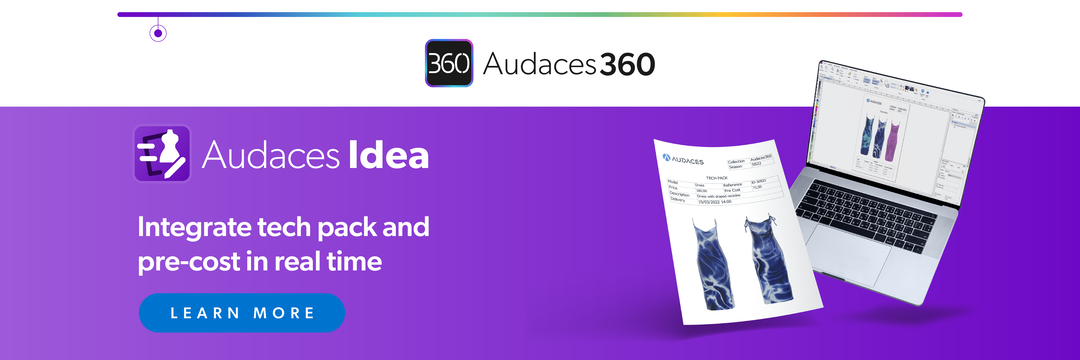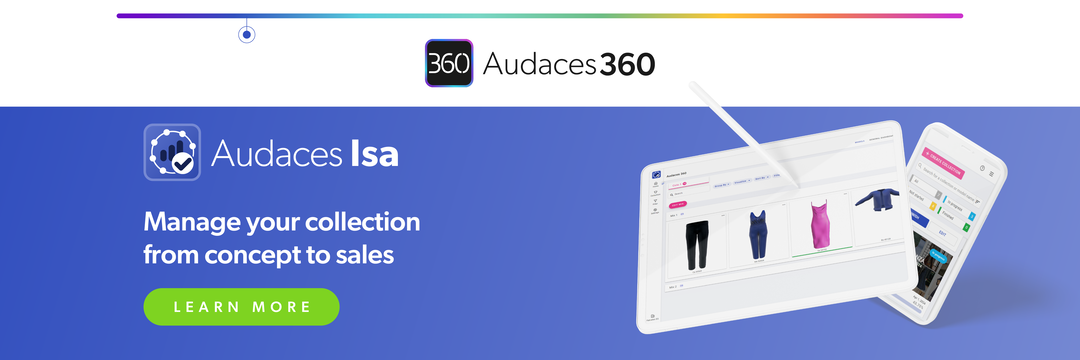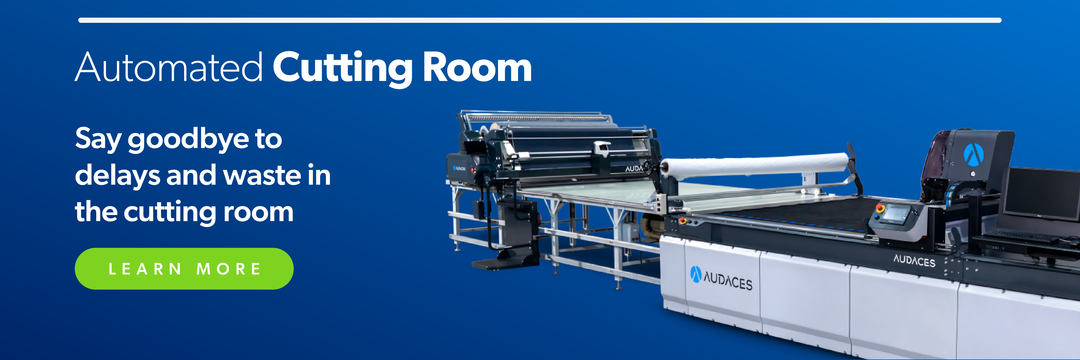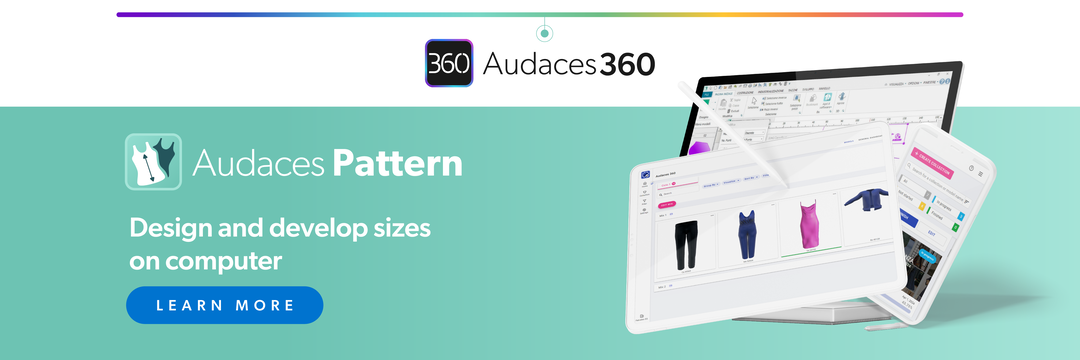Summary
- White label and private label products are popular choices in the fashion industry.
- Knowing the difference is the first step to choosing which option will benefit your business.
- Whether you’re producing or managing collections, Audaces360 provides the most comprehensive solutions. Start your free trial today!
When it comes to creating or expanding a product line, two main options often come to mind. People commonly refer to them as white label and private label productions.
Both let you sell products under your brand, but they serve different purposes. The choice you make will depend on your specific goals and resources.
Throughout this guide, we’ll break down the top five benefits of each approach. By the end, you’ll be able to see clearly which option aligns with your strategy.
Happy reading!
Sumário
What are white label and private label products?
White label and private label models allow fashion companies to sell collections without manufacturing them in-house.
Both options involve outsourcing production while keeping the brand name.
Manufacturers create white label products as ready-made items for various brands to sell without customization.
Brands can quickly add new items to their offerings without investing in design or production.
On the other hand, private labels create products specifically for one brand. In this case, a retailer works closely with a manufacturer to develop unique designs.
This approach gives brands more control over their products and allows them to stand out in the market.
Learn more: Discover a step-by-step guide on how to start an online fashion store
What is the difference between white label vs private label?
The main difference between white label vs private label lies in customization. White label products are not specific to any brand, whereas private label items are exclusive for a specific retailer.
Multiple brands can sell white label products. For example, a factory might produce a line of basic t-shirts that any retailer can buy and sell as their own.
Meanwhile, private label products are exclusively for one brand. This means the brand can choose the style, colors, and materials of the items.
Learn more: A step-by-step guide on how to make a clothing line
Benefits of each type of business
Both white label and private label products offer unique advantages for businesses. Understanding these benefits can help brands choose the best option for their needs:
White label

Quick launch
One of the biggest benefits of white label products is the ability to launch quickly. Brands can select from ready-made items and start selling them almost right away.
This speed helps businesses take advantage of trends and meet customer demands without delay.
A quick launch can also help brands build their market presence faster. By offering new products quickly, they can attract customers and increase sales.
Learn more: 4 top tips for a successful fashion collection launch
Low initial cost
White label products often come with low initial costs. Since the items are pre-made, brands don’t need to invest in design or manufacturing.
The lower cost makes it easier for small businesses to enter the market.
Additionally, brands can avoid many of the risks associated with creating new products. You can reduce design, development and production costs.
Ready to launch your fashion business? Get our free resource packed with insider tips!
Easy scalability
Generic products allow for easy scalability. As a brand grows, it can quickly add more products to market without much hassle.
You can easily respond to customer demand and offer a wide range of options.
When a brand sees success with a white label item, it can order more stock and expand its sales. This flexibility makes it simple for businesses to grow and adapt to trends.
You have the power to scale operations while minimizing the risks.
Less operational complexity
Another benefit of these products is less operational complexity. Since the white label manufacturer handles production, brands can focus on marketing and sales.
This reduces the workload and allows companies to operate more efficiently.
With fewer responsibilities related to manufacturing, you can streamline your processes. You also save time and effort to direct toward other strategies, like building customer relationships.
Product diversification
White label products enable brands to diversify their product offerings easily. By choosing different items from manufacturers, you can cater to a wider audience.
Diversifying products can also improve brand visibility. When customers see a range of options, they are more likely to find something they like.
This strategy helps brands stand out in a competitive market, making it easier to grow their customer base.
Learn more: Discover 3 expert tips for composing a fashion product mix
Private label

Complete personalization
One of the main benefits of private label products is the customization options. Brands can create items that match their specific vision and style.
It means you can choose everything in product development. From colors and materials to designs and sizes.
Personalization allows brands to cater directly to their target audience. You can create products that appeal to your customers’ tastes and preferences.
This unique offering helps build stronger connections with shoppers and enhances loyalty.
Learn more: What is a private label, and what are the advantages of this type of business?
Brand exclusivity
Private label products offer brand exclusivity. They make products specifically for one brand, which means no other company can sell them.
Unique branded items help brands stand out from the competition. When customers see unique products that they can only find at one store, it attracts their attention.
It creates a sense of urgency, encouraging them to purchase. This exclusivity can drive sales and strengthen the brand’s recognition.
Reinforced branding
When you choose private labeling, you help reinforce branding. Since you can fully customize products, you can ensure that everything aligns with your business image.
Consistency makes it easier for customers to recognize and remember branded products.
When shoppers associate quality and uniqueness with a brand, they are more likely to return. You must reinforce this strategy with additional marketing initiatives.
Learn more: How to select pieces of clothing for a fashion collection?
Quality control
Quality control is another significant advantage of private label manufacturers. Brands have the power to oversee the production process and ensure high standards.
You can select materials and production methods that meet your quality expectations.
By overseeing quality, you reduce the risk of customer complaints. Satisfied customers are more likely to share their positive experiences and recommend the brand to others.
Direct relationship with suppliers
Private label brands often have a direct relationship with their suppliers. This close partnership allows for better communication and collaboration.
Brands can work closely with manufacturers to develop better products. Besides, having a direct relationship also provides brands with more flexibility.
They can adjust orders based on demand or make changes to designs when necessary. It helps streamline operations and improve efficiency, benefiting both the brand and the supplier.
How to define which option is best for you?
Choosing between white label vs private label products depends on your business goals and resources. First, consider how quickly you want to launch new items.
If you need to enter the market fast, white label products might be the best choice. They are ready-made and allow you to start selling them right away.
On the other hand, if you want more control over your products, private label may be better. This option lets you customize designs and materials to fit your brand’s identity.
It requires more time and effort but can lead to unique offerings that set your brand apart. If your audience seeks exclusivity, private label products can help you build a stronger connection with them.
Evaluate your budget, timeline, and brand vision to understand your priorities. This way you can make an informed decision.
Both options have their advantages, so choose the one that aligns best with your business strategy.
Learn more: Uncover the benefits of fashion trend forecasting for your clothing business
Automate the production of your white label or private label
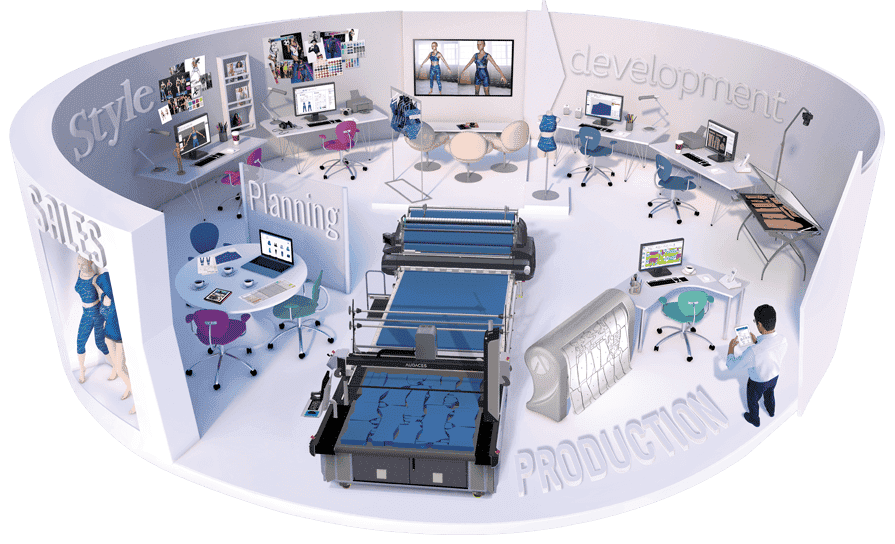
Audaces360
Audaces360 integrates cutting-edge technology to optimize workflows in the textile and apparel industry.
We’ve carefully developed all solutions to address the specific challenges of fashion businesses. They streamline your design and production processes, saving valuable time and resources.
It boasts a comprehensive range of functionalities. They include pattern making, marking, collection management, vector drawing, and 3D creation.
In addition, a fashion Artificial Intelligence to assist you along the way.
Audaces Cutting Room
Audaces Cutting Room combines software and hardware solutions for the textile industry.
Our experts will thoroughly assess your needs and create a comprehensive report. Then, a specialized team will develop a personalized project to unlock your company’s full potential.
Rely on Audaces’ cutting-edge machinery to obtain great improvements in production. From greater design flexibility to enhanced efficiency and reduced costs.
Achieve impeccable cuts on curves and details, speeding up your deliveries and minimizing fabric waste through automation.
Want to stay up to date on the latest fashion industry news? Subscribe to our newsletter!
FAQ
White label and private label models allow fashion companies to sell collections without manufacturing them in-house.
The main difference between white label vs private label lies in customization. White label products are not specific to any brand whereas private label items are exclusive for a specific retailer.
White labels offer quick launch, low initial cost, easy scalability, less operational complexity, and diversification. Private labels offer personalization, exclusivity, reinforced branding, quality control, and direct relationship with suppliers.


